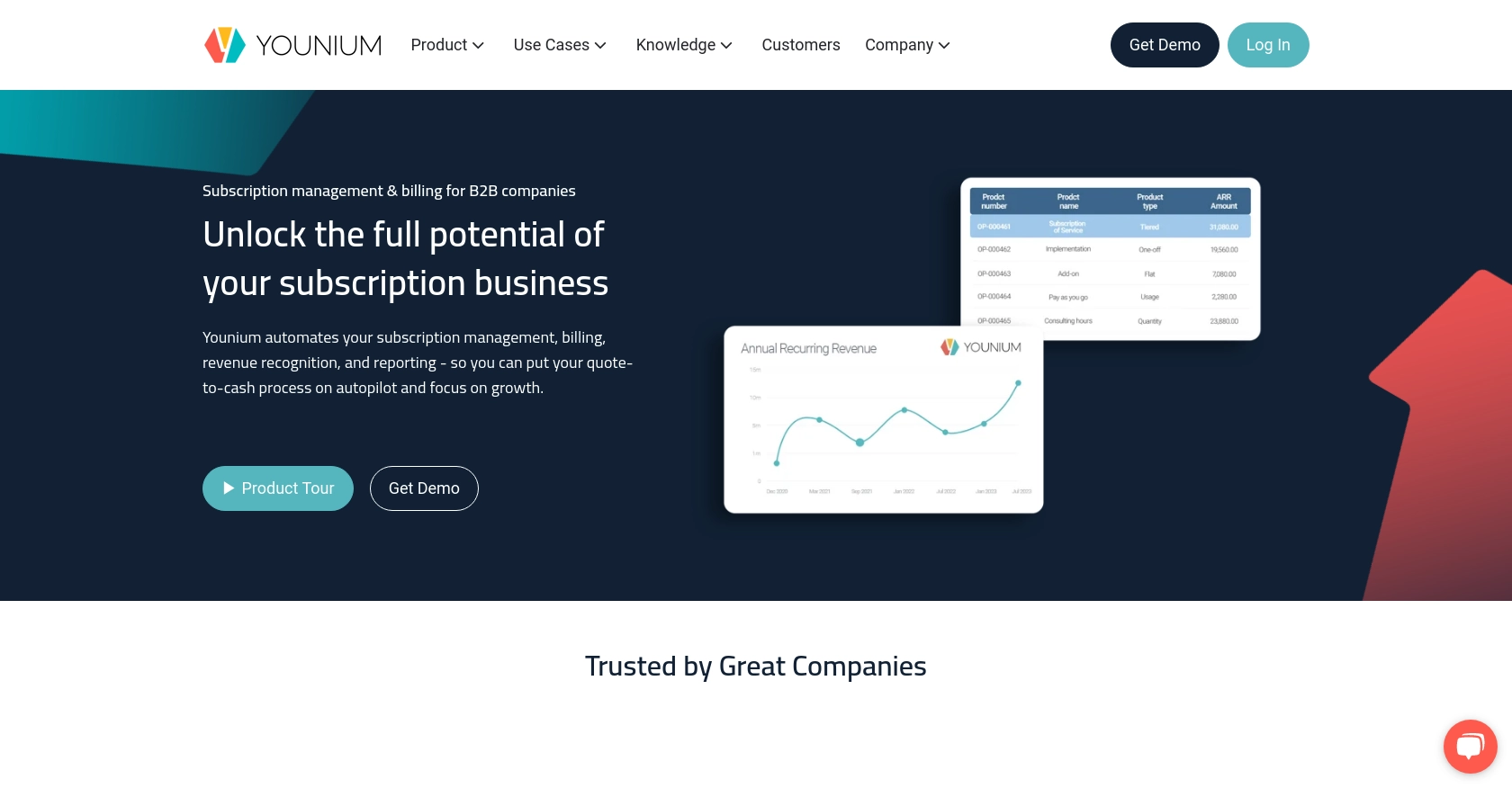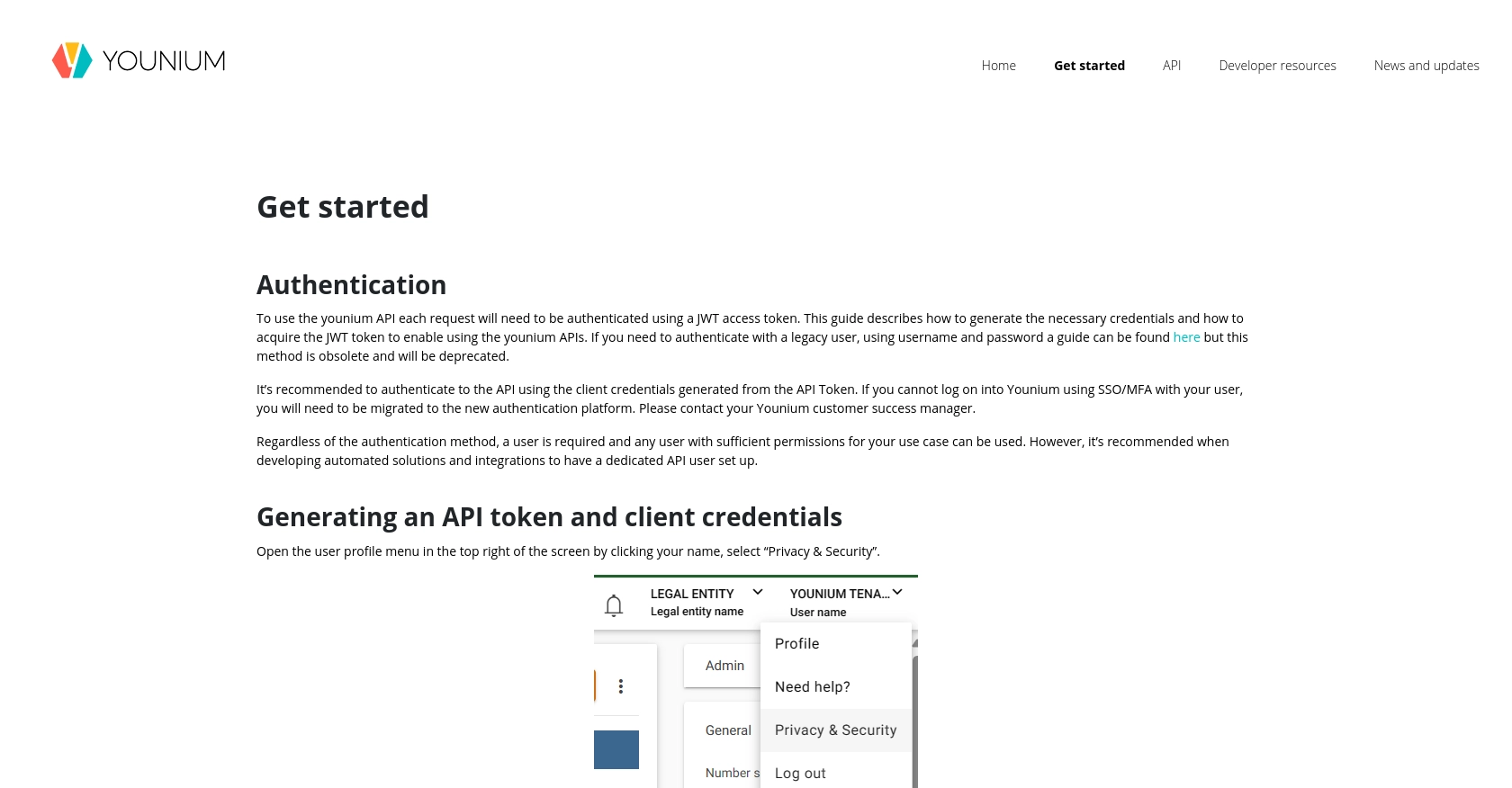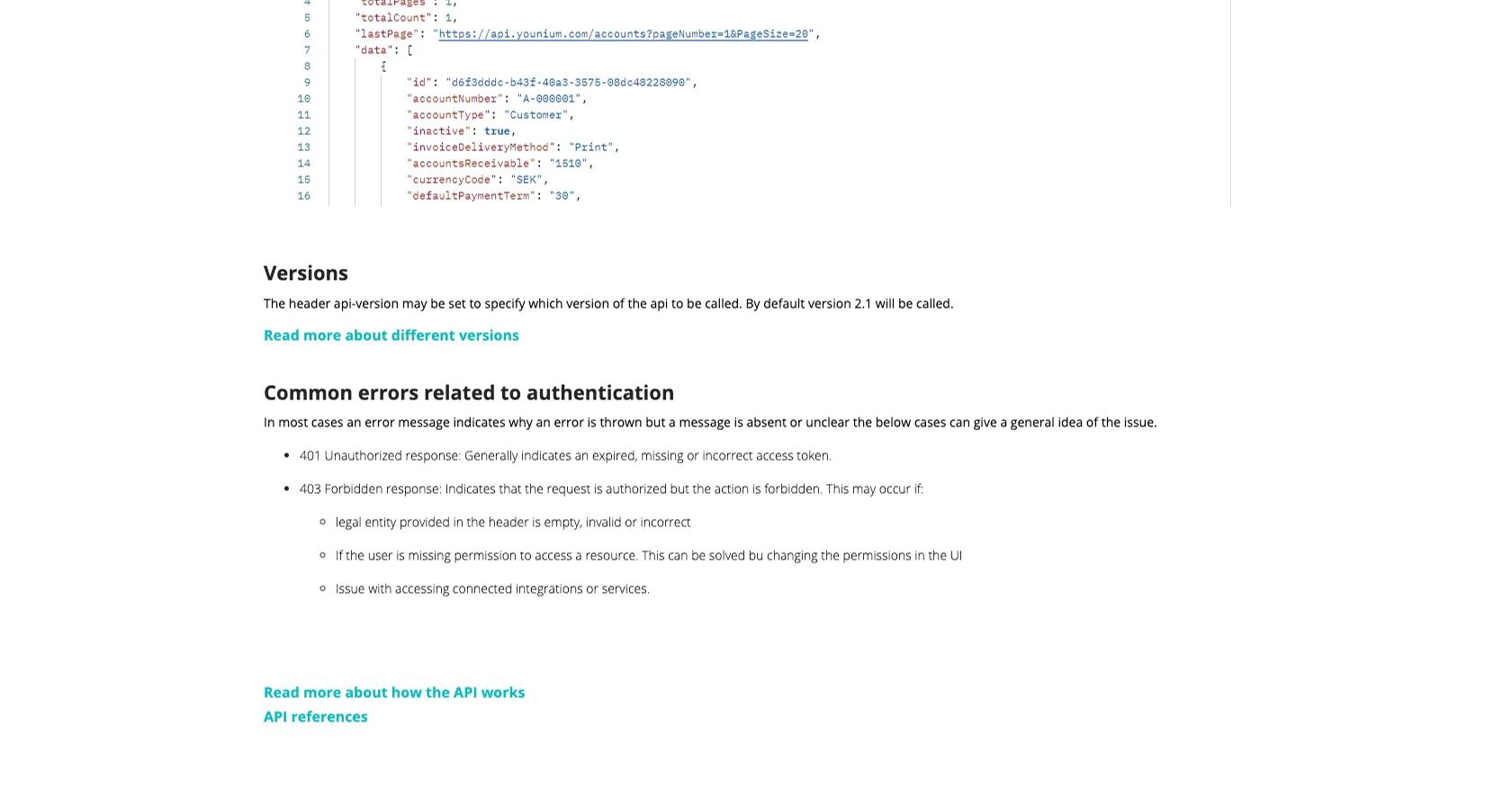Using the Younium API to Get Invoices (with PHP examples)

Introduction to Younium API Integration
Younium is a comprehensive subscription management platform designed to streamline billing and invoicing processes for B2B SaaS companies. It offers robust features for managing subscriptions, invoicing, and financial reporting, making it an essential tool for businesses looking to optimize their revenue operations.
Integrating with the Younium API allows developers to automate and enhance their invoicing processes. For example, by using the Younium API, you can programmatically retrieve invoice data to generate financial reports or synchronize billing information with other systems, ensuring seamless financial operations.
Setting Up Your Younium Sandbox Account for API Integration
Before you can start using the Younium API to retrieve invoices, you'll need to set up a sandbox account. This environment allows you to test your integration without affecting live data, ensuring a smooth development process.
Creating a Younium Sandbox Account
To begin, you'll need to create a sandbox account on the Younium platform. Follow these steps:
- Visit the Younium Developer Portal.
- Sign up for a sandbox account by providing the necessary details.
- Once registered, log in to your sandbox account to access the developer tools and resources.
Generating API Token and Client Credentials
Younium uses JWT access tokens for API authentication. Follow these steps to generate the necessary credentials:
- Navigate to your user profile by clicking your name in the top right corner.
- Select “Privacy & Security” from the dropdown menu.
- Click on “Personal Tokens” in the left panel and then “Generate Token”.
- Provide a relevant description and click “Create”.
- Copy the generated Client ID and Secret key. These will be used to generate your JWT token.
Acquiring a JWT Access Token
With your client credentials ready, you can now acquire a JWT access token:
// Set the API endpoint for token generation
$url = "https://api.sandbox.younium.com/auth/token";
// Prepare the request headers and body
$headers = [
"Content-Type: application/json"
];
$body = json_encode([
"clientId" => "Your_Client_ID",
"secret" => "Your_Secret_Key"
]);
// Use cURL to make the POST request
$ch = curl_init($url);
curl_setopt($ch, CURLOPT_HTTPHEADER, $headers);
curl_setopt($ch, CURLOPT_POST, true);
curl_setopt($ch, CURLOPT_POSTFIELDS, $body);
curl_setopt($ch, CURLOPT_RETURNTRANSFER, true);
// Execute the request and decode the response
$response = curl_exec($ch);
curl_close($ch);
$data = json_decode($response, true);
// Access the JWT token
$accessToken = $data['accessToken'];
Replace Your_Client_ID and Your_Secret_Key with the credentials you generated earlier. The $accessToken will be used for authenticating your API requests.
For more details on authentication, refer to the Younium Authentication Documentation.

sbb-itb-96038d7
Making API Calls to Retrieve Invoices from Younium Using PHP
With your authentication set up, you're ready to make API calls to the Younium platform. In this section, we'll guide you through retrieving invoices using PHP. This process involves setting up the necessary environment, writing the code to make the API call, and handling the response.
Setting Up Your PHP Environment for Younium API Integration
Before making API calls, ensure your PHP environment is ready. You'll need:
- PHP 7.4 or later
- cURL extension enabled
These prerequisites ensure you can execute HTTP requests and handle JSON responses effectively.
Writing PHP Code to Retrieve Invoices from Younium API
Now, let's write the PHP code to fetch invoices from Younium:
// Set the API endpoint for retrieving invoices
$url = "https://api.sandbox.younium.com/invoices";
// Prepare the request headers
$headers = [
"Authorization: Bearer $accessToken",
"Content-Type: application/json",
"api-version: 2.1"
];
// Initialize cURL session
$ch = curl_init($url);
curl_setopt($ch, CURLOPT_HTTPHEADER, $headers);
curl_setopt($ch, CURLOPT_RETURNTRANSFER, true);
// Execute the request and decode the response
$response = curl_exec($ch);
curl_close($ch);
$data = json_decode($response, true);
// Check if the request was successful
if (isset($data['data'])) {
foreach ($data['data'] as $invoice) {
echo "Invoice ID: " . $invoice['id'] . "
";
echo "Amount: " . $invoice['amount'] . "
";
echo "Currency: " . $invoice['currencyCode'] . "
";
}
} else {
echo "Failed to retrieve invoices.";
}
Replace $accessToken with the JWT token obtained earlier. This script initializes a cURL session, sets the necessary headers, and sends a GET request to the Younium API to retrieve invoices. The response is parsed and displayed, showing invoice details such as ID, amount, and currency.
Verifying API Call Success and Handling Errors
After executing the script, verify the success of your API call by checking the output. If invoices are displayed, your integration is successful. If not, ensure your access token is valid and check for any error messages.
Common error codes include:
- 401 Unauthorized: Indicates an expired or incorrect access token.
- 403 Forbidden: Suggests insufficient permissions or an incorrect legal entity.
For more details on error handling, refer to the Younium API Documentation.

Conclusion and Best Practices for Younium API Integration
Integrating with the Younium API can significantly enhance your invoicing and billing processes, providing automation and synchronization capabilities that streamline financial operations. By following the steps outlined in this guide, you can effectively retrieve invoice data using PHP, ensuring seamless integration with your existing systems.
Best Practices for Secure and Efficient Younium API Usage
- Secure Storage of Credentials: Always store your client credentials and JWT tokens securely. Consider using environment variables or secure vaults to prevent unauthorized access.
- Handle Rate Limiting: Be mindful of API rate limits to avoid service disruptions. Implement exponential backoff strategies to manage retries effectively.
- Data Standardization: Ensure that the data retrieved from Younium is standardized and transformed as needed to fit your system's requirements.
- Regular Token Refresh: Since JWT tokens expire after 24 hours, implement a mechanism to refresh tokens regularly to maintain uninterrupted API access.
Enhancing Your Integration Strategy with Endgrate
While integrating with Younium can be highly beneficial, managing multiple integrations can become complex and time-consuming. This is where Endgrate can be a game-changer. By providing a unified API endpoint, Endgrate allows you to connect with various platforms, including Younium, through a single integration point.
With Endgrate, you can save time and resources by outsourcing integrations, allowing your team to focus on core product development. Enjoy an intuitive integration experience that simplifies the process for your customers and scales with your business needs.
Explore how Endgrate can transform your integration strategy by visiting Endgrate's website today.
Read More
Ready to get started?
